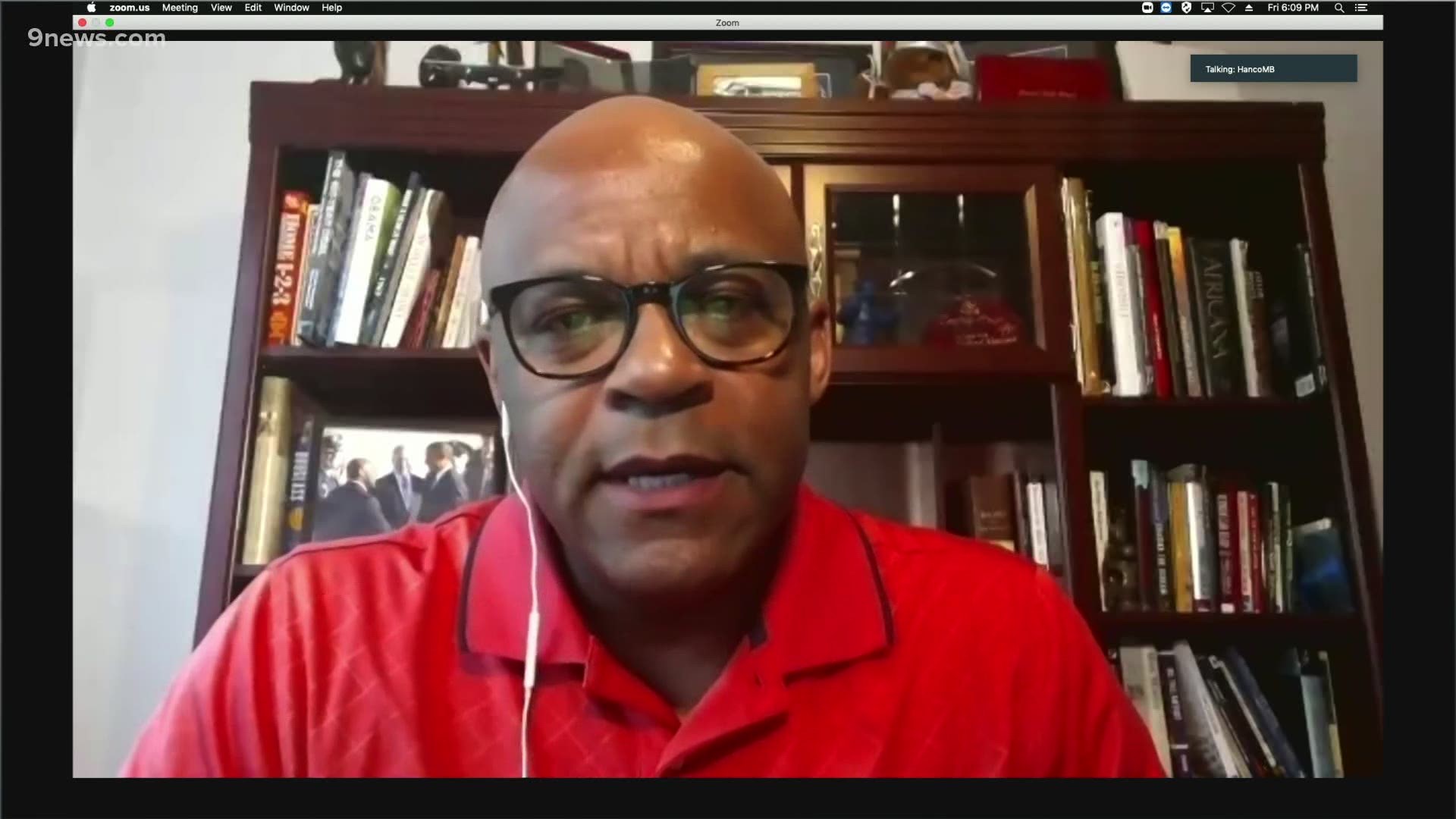DENVER — A spokesperson for Mayor Michael Hancock has walked back the mayor's use of the word “murder” to describe the deaths of Michael Marshall, Marvin Booker and Jessica Hernandez at the hands of Denver law enforcement.
Theresa Marchetta said Tuesday that the mayor meant to say “killed” and did not intend for the legal implications attached to “murder” when he spoke to Next with Kyle Clark.
In the interview Friday, Kyle Clark asked the mayor if he considers those local deaths to be murder, as he has said about the death of George Floyd, who died at the hands of law enforcement last week in Minneapolis.
Booker, Marshall and Hernandez were all killed in officer-involved incidents that resulted in city payouts to their families.
"Was Marvin Booker murdered? Michael Marshall, was he murdered? Was Jessie Hernandez murdered at the hands of Denver officers?" -KC
"Those individuals were, yes, murdered by police officers." -MH
RELATED: Denver mayor: Marvin Booker, Michael Marshall, Jessie Hernandez were 'murdered' by law enforcement
Next reached out to the mayor's office to ask if Hancock was seeking a prosecutor to look at possible charges in those cases if he characterizes them as murder. The mayor’s office replied with this statement:
When asked about cases of tragic deaths at the hands of local law enforcement, the Mayor used the term “murdered”, when what he meant was “killed”. He was not referring to the legal meaning of the word, but rather conveyed the individuals were killed by law enforcement. The Mayor also made clear that in Denver at least, training, policies and practices were reviewed and improved following each incident. These were all tragic losses of life that have meant anguish for the families of those killed. All lead to lasting improvements in policing in Denver.
Booker case: The use of carotid restraint holds was eliminated from DSD’s use of force policy and a Use of Force Task Force was formed, which included members of the community, and the Task Force created a new Use of Force Policy.
Marshall case: Denver created two full-time positions for on-site mental health providers for both of its jails and in-service training has occurred on an annual basis for DSD deputies regarding mental health and use of force issues.
Hernandez case: DPD’s Discharge of Firearms and Motor Vehicle Policy was changed to prohibit firing at moving or fleeing vehicles unless deadly force is being used against the police officer or others.
In 2017, DPD also examined its Use of Force Policy and revised the same based upon community input.
Denver has taken, and will continue to take, proactive steps to review use of force incidents and continue to improve upon its existing policy, procedures and training based upon such review.
SUGGESTED VIDEOS: Full Episodes of Next with Kyle Clark

